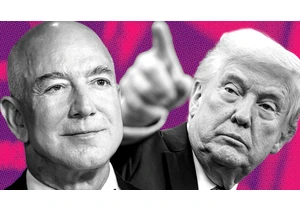Vice President Kamala Harris lost the presidential race on Tuesday in large part because Americans are dissatisfied with the economy. According to an NBC News exit poll, 31% of voters cited the economy as their top issue.
While President Joe Biden oversaw the economy of the past four years, Harris, in inheriting his position atop the Democratic ticket, adopted his incumbent’s disadvantage on the economy.
In some respects, that should have been a boon. After all, by many metrics, the economy has been quite strong. America’s gross domestic product has grown every year since 2020, when the COVID-19 pandemic hit the United States. Unemployment dropped under 5% in 2021 and has stayed there ever since. The stock market has steadily grown while the U.S. dollar has remained stable relative to other major currencies.
And while inflation has run rampant—making everything in the American economy pricier—for most Americans, wage growth has outpaced inflation for more than two years.
But then, inflation was indeed really, really bad. Inflation sat at just 1.4% in 2020, but jumped to 7% in 2021 and 6.5% in 2022 before slinking back toward earth—3.4% and 2.4% in the past two years, respectively. That’s the worst since the late 1970s and early 1980s, when stagflation was the term of the day.
To put it another way: $100 in January 2021 money had the same buying power as $120 in September 2024 money, according to the government’s inflation calculator.
But that inflation stemmed from the pandemic, the early response to which was coordinated by former President Donald Trump—not Biden and not Harris. Trump championed the CARES Act, which among other things put stimulus checks in the hands of Americans. That may have been a needed measure at the time, but it also directly fueled inflation.
The Biden-Harris administration’s biggest failure wasn’t in their attempts to rein in inflation, but in their inability to communicate that once-in-a-generation problem to the American populace. According to a CNN exit poll, 74% of Trump voters said inflation had caused them “severe hardship” in the past year—compared to just 24% of Harris voters saying the same.
And while Biden managed to lower inflation and stimulate economic growth, Trump very well may reverse that progress. Sure, the stock market is soaring today on the news of Trump’s return to the White House, but that’s largely because companies believe that he will usher in a laissez-faire regulatory regime that will benefit them directly.
But Trump’s own plans include mass deportations of undocumented immigrants and restrictive tariffs on U.S. businesses selling abroad, particularly to China. He’s promised to cut taxes for corporations and the ultrawealthy, part of a plan that economists estimate could mean nearly $8 trillion in additional government debt in the next decade. And if Trump’s policies exacerbate inflation by placing higher costs on businesses, then the Federal Reserve might not continue cutting interest rates, making it harder for people to afford houses.
The American people voted because they were dissatisfied with the economy. Biden and then Harris were unable to assure them that they’d be the better solution for their pockets. Now, the next four years might put voters in an even worse position.
Zaloguj się, aby dodać komentarz
Inne posty w tej grupie

Consumers are only just starting to feel pain from Trump’s Liberation Day tariff spree. Amazon

When Donald Trump returned to the White House in 2025, many in the tech world hoped his promises to champion artificial intelligence and cut regulation would outweigh the risks of his famously vol

The first 27 satellites for Amazon’s Kuiper broadband internet constellation were launched into space from Florid

There are so many ways to die. You could fall off a cliff. A monk could light you on fire. A bat the size of a yacht could kick your head in. You’ve only just begun the game, and yet here you are,

Former Tinder CEO Renate Nyborg launched Meeno less than two years ago with the intention of it being an AI chatbot that help

The most indelible image from Donald Trump’s inauguration in January is not the image of the president taking the oath of office without his hand on the Bible. It is not the image of the First Lad

Ernest Hemingway had an influential theory about fiction that might explain a lot about a p
